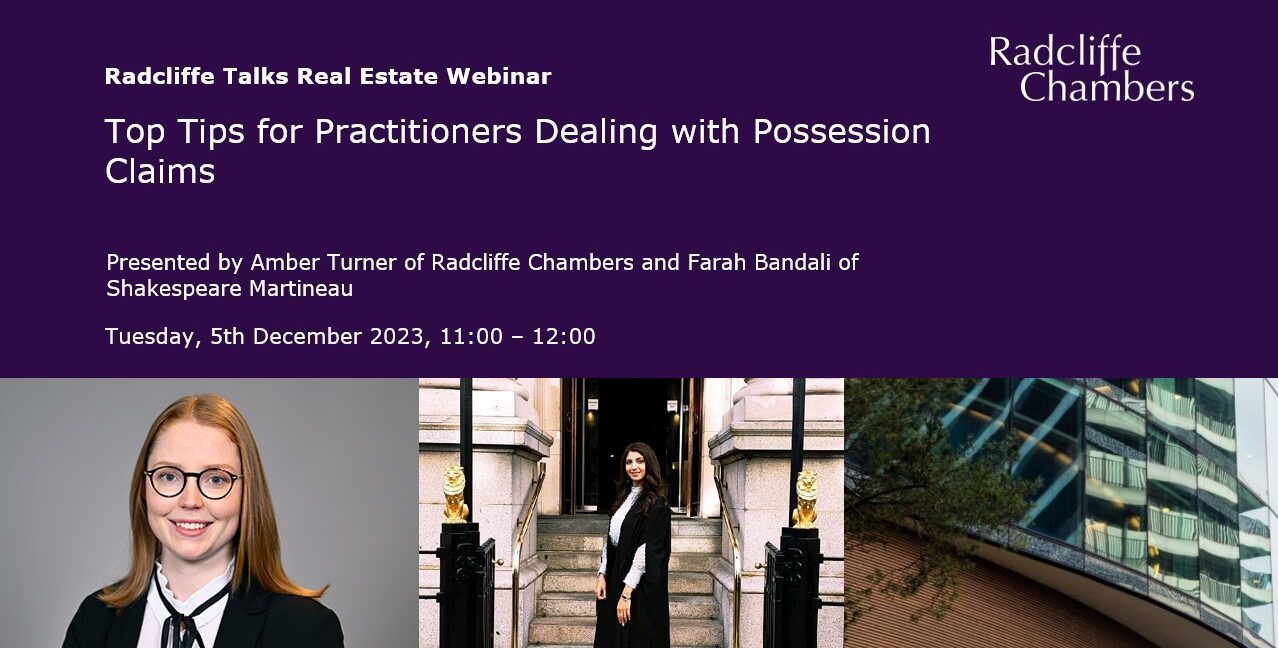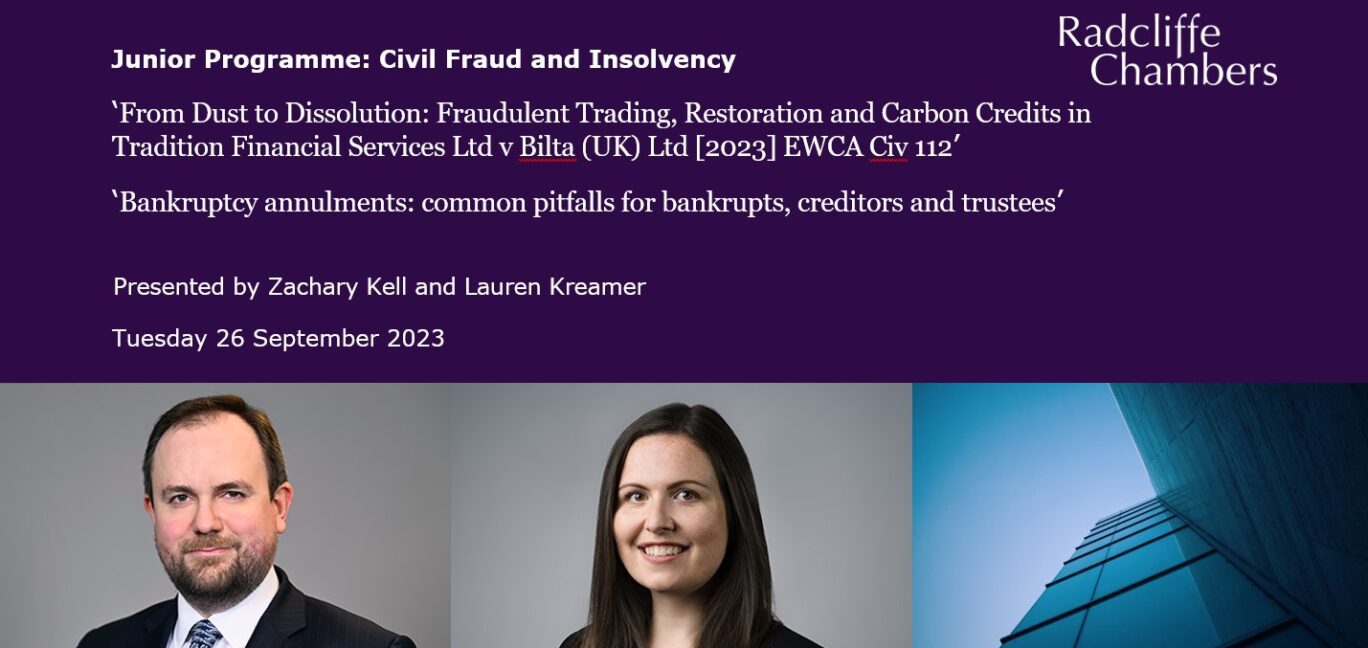Samuel Lane

During his pupillage, Sam was supervised by Joshua Winfield, Zachary Kell, Kate Rogers, and Kate Selway KC. He gained experience across the full spectrum of Chambers’ work, from commercial and insolvency disputes to private client and charities litigation. Prior to coming to the Bar, Sam studied and taught History at the University of Oxford. He […]
Peachside Limited v Lee and Keung [2024] EWHC 921 (TCC)

Wendy Mathers, instructed by Bude Nathan Iwanier LLP, acted for the successful Claimant in Peachside Limited v Lee and Keung [2024] EWHC 921 (TCC). The Claimant landlord sought damages for dilapidations at the end of a commercial lease. Unusually, both limbs of section 18(1) of the Landlord and Tenant Act 1927 were engaged, meaning then Judge […]
Barklem v HMRC [2024] EWHC 651 (Ch)

Mr Justice Fancourt has handed down judgment in Barklem v HMRC [2024] EWHC 651 (Ch), in which HMRC successfully obtained an order striking out High Court proceedings on the ground that they were an abuse of process. The claim had been brought in connection with a film partnership tax scheme. Nicholas Macklam acted for HMRC. […]
Lane v Lane [2024] EWHC 275 (Ch)

Daniel Burton, instructed by Rob Adam of Greene & Greene, represented the successful Claimant beneficiary in contested Part 64 proceedings concerning the administration of a farming estate. The Court held that a testamentary gift of a “share and interest” in a dissolved partnership had not adeemed and, generally, would not adeem until the payment of […]
Savage v Savage [2024] EWCA Civ 49

The Court of Appeal have handed down judgment in Savage v Savage [2024] EWCA Civ 49, clarifying the respective rights of majority and minority beneficiaries when disputes arise over trusts of land. William Moffett and Amber Turner, instructed by Simon Donald of Cripps LLP, represented the successful appellant in a second appeal. The case considered […]
Radcliffe talks Real Estate: Top Tips for Practitioners Dealing with Possession Claims

In this episode of Radcliffe talks Real Estate, Amber Turner of Radcliffe Chambers and Farah Bandali of Shakespeare Martineau discuss their top tips for practitioners dealing with possession claims. The talk covers key issues in claims involving forfeiture, privately rented properties, and mortgages. The talk will be of interest to those working in the commercial […]
Wolverhampton City Council & Ors (Respondents) v London Gypsies and Travellers & Ors (Appellants) [2023] UKSC 47

The Supreme Court confirm that ‘newcomer injunctions’ are a new and permissible form of injunction. Caroline Bolton and Natalie Pratt have responded successfully for the Third to Tenth Respondent local authorities in Supreme Court in the appeal of Wolverhampton City Council & Ors v London Gypsies and Travellers & Ors. The issue before the Court […]
Radcliffe Chambers ranked as a leading set in Chambers UK Bar 2024

We are delighted to be recognised as a leading set by Chambers UK Bar 2024, achieving 72 individual barrister rankings, which includes 2 star individuals, 21 new and improved, and 1 up and coming. Radcliffe Chambers has been recognised for its expertise in 14 practice areas (listed below), which includes a tier 1 ranking for […]
From Dust to Dissolution: Fraudulent Trading, Restoration and Carbon Credits in Tradition Financial Services Ltd v Bilta (UK) Ltd [2023] EWCA Civ 112 and Bankruptcy annulments: common pitfalls for bankrupts, creditors and trustees – podcast and presentation slides

In this Junior Programme: Civil Fraud and Insolvency Zachary Kell and Lauren Kreamer present on ‘From Dust to Dissolution: Fraudulent Trading, Restoration and Carbon Credits in Tradition Financial Services Ltd v Bilta (UK) Ltd [2023] EWCA Civ 112′ and ‘Bankruptcy annulments: common pitfalls for bankrupts, creditors and trustees’. Please find the presentation slides here. The recording of […]
Olivia Wilson

Olivia regularly appears as sole counsel in the County Courts and High Courts and is building a broad chancery and commercial practice. During pupillage, Olivia was involved in cases across the range of traditional and commercial chancery work, including, insolvency, contract disputes, trusts, probate, pensions, landlord and tenant and charities. Olivia was supervised by Andrew […]
